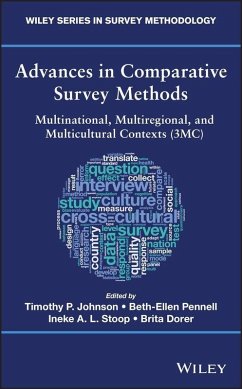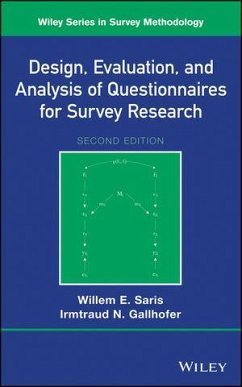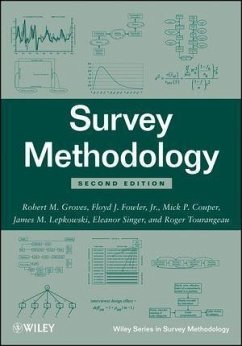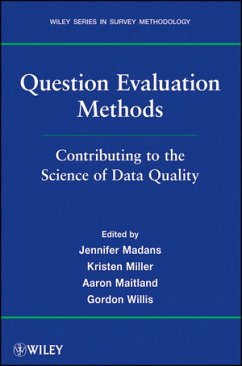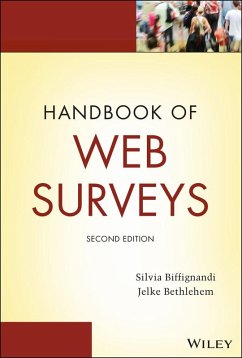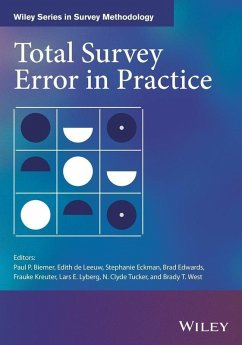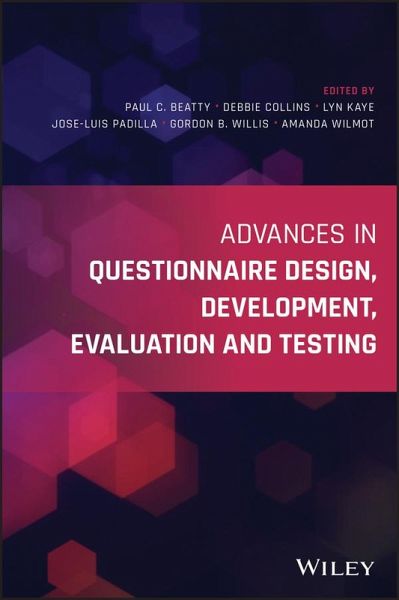
Advances in Questionnaire Design, Development, Evaluation and Testing (eBook, ePUB)

PAYBACK Punkte
0 °P sammeln!
A new and updated definitive resource for survey questionnaire testing and evaluation Building on the success of the first Questionnaire Development, Evaluation, and Testing (QDET) conference in 2002, this book brings together leading papers from the Second International Conference on Questionnaire Design, Development, Evaluation, and Testing (QDET2) held in 2016. The volume assesses the current state of the art and science of QDET; examines the importance of methodological attention to the questionnaire in the present world of information collection; and ponders how the QDET field can anticip...
A new and updated definitive resource for survey questionnaire testing and evaluation Building on the success of the first Questionnaire Development, Evaluation, and Testing (QDET) conference in 2002, this book brings together leading papers from the Second International Conference on Questionnaire Design, Development, Evaluation, and Testing (QDET2) held in 2016. The volume assesses the current state of the art and science of QDET; examines the importance of methodological attention to the questionnaire in the present world of information collection; and ponders how the QDET field can anticipate new trends and directions as information needs and data collection methods continue to evolve. Featuring contributions from international experts in survey methodology, Advances in Questionnaire Design, Development, Evaluation and Testing includes latest insights on question characteristics, usability testing, web probing, and other pretesting approaches, as well as: * Recent developments in the design and evaluation of digital and self-administered surveys * Strategies for comparing and combining questionnaire evaluation methods * Approaches for cross-cultural and cross-national questionnaire development * New data sources and methodological innovations during the last 15 years * Case studies and practical applications Advances in Questionnaire Design, Development, Evaluation and Testing serves as a forum to prepare researchers to meet the next generation of challenges, making it an excellent resource for researchers and practitioners in government, academia, and the private sector.
Dieser Download kann aus rechtlichen Gründen nur mit Rechnungsadresse in A, B, BG, CY, CZ, D, DK, EW, E, FIN, F, GR, HR, H, IRL, I, LT, L, LR, M, NL, PL, P, R, S, SLO, SK ausgeliefert werden.





